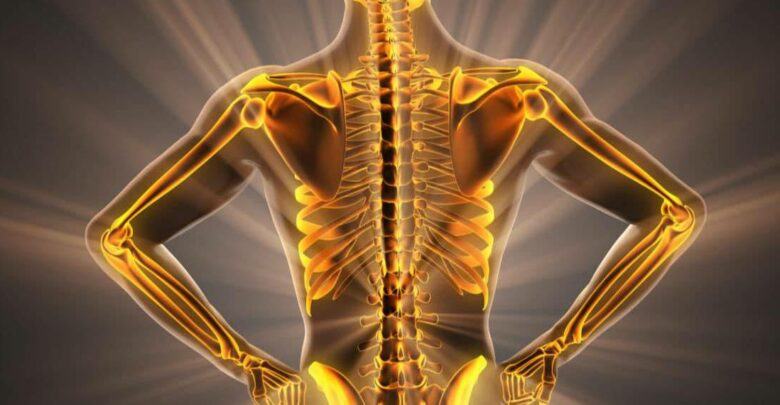Health and Medical
10 Natural Ways To Build Healthy Bones

Maintaining bone health through bone-strengthening foods is important, considering your bone density reduces with age. Minerals are mainly incorporated into your bones during your childhood, adolescence and adulthood. By 30, your bone mass peaks and begins decreasing after 40.
Also CheckOut:
Home Depot Health Check App
Home Depot wants to help and it’s offering customers a way to get that information on the go. The home improvement store has teamed up with digital home services platform Tipi to bring its Home Depot Health Check app to customers nationwide.
If you do not have a solid diet and exercise regime, you risk bone fragility and need orthopaedic intervention. Here are 10 natural ways you can preserve bone strength and build healthy bones.
-
High Vegetable Consumption
Vegetables remain one of the best ways to maintain bone density into later years. Being high in vitamin C, vegetables stimulate bone-forming cells’ production, and their antioxidant properties can even protect against bone cell damage. They can also increase and maintain bone mineralisation and bone mass while helping prevent common disorders like osteoporosis.
-
Eat More Protein
Since approximately 50% of the bone is made of protein, high protein intake is essential for sufficient calcium absorption and bone formation. Including high protein levels in a balanced diet with adequate calcium can improve bone density and reduce the risk of fractures. Furthermore, consuming protein can aid in your weight loss journey while preserving bone mass despite the calorie-restricted diet.
-
Increase Daily Calcium Intake
It is common knowledge that calcium is the most important mineral for bone health. Since old bone cells constantly break down and get replaced by new cells, calcium helps protect your bones’ structure and strength.
Ideally, consuming 1000mg of calcium per day is a good idea. However, you should spread this out across the day since your body cannot absorb that amount of calcium in one go. Additionally, getting calcium from bone-strengthening foods like curd gives you other vitamin benefits and reduces the chance of adverse results, rather than opting for supplements.
-
Avoid Massive Weight Fluctuations
Alongside a nutritious, balanced diet, weight management can improve bone health. Achieving a healthy weight and staying on it reduces the risk of osteoporosis and osteopenia. In postmenopausal women whose oestrogen is no longer protecting the bones, staying at a healthy weight can be especially beneficial. Low body weight often means reduced bone density and increased bone loss. Similarly, obesity can affect bone quality and increase the risk of fracturing bones.
Massive weight fluctuations are also detrimental to bone health, and bone loss is often not regained when weight is regained. Therefore, constant fluctuations can cause significant bone loss in the long run.
-
Building Strength by Working Out
While you know cardio is good for the heart, weight training is good for your bones. High impact exercises and steady strength building can prevent bone loss in adults while increasing mineral density, strength and size. Therefore, strength training builds both muscle and bone mass in the long term.
-
Ensure Vitamin D and K
Vitamin D helps your body absorb calcium and improve bone health, protecting you against osteoporosis and osteopenia. It also helps maintain bone density. Therefore, getting adequate sunlight exposure and eating bone-strengthening foods like fish and cheese are necessary to keep vitamin D levels high.
Vitamin K2 modifies a protein involved in bone formation, osteocalcin. The modification ensures osteocalcin binds to minerals, preventing calcium loss. Eating eggs, meat, and cheese can help you get the vitamin K necessary for optimum bone density.
-
Get the Appropriate Number of Calories
The low-calorie fad diets on the internet today not only slow your metabolism but also seriously harm bone health. The adult human needs a minimum of 1200 calories per day. Consuming less than 1000 calories in a day leads to lower bone density across weight brackets regardless of strength training.
-
Consider Collagen Supplements
Collagen is the main protein in your bones, containing amino acids that build bone, muscle, tissues and ligaments. Collagen hydrolysate or gelatin has also been used to relieve joint pain. Since orthopaedics and rheumatology often go together, collagen supplements may have beneficial effects on your bone health. It also improves joint conditions like arthritis.
-
Consume Foods High in Magnesium and Zinc
Alongside calcium, magnesium and zinc are also minerals essential for bone health. Magnesium enables calcium absorption while zinc promotes bone cell formation and prevents excessive bone breakdown. Therefore, including magnesium and zinc in your diet helps bone growth and density. Certain bone-strengthening foods like beef, spinach, and flaxseed give you these minerals.
-
Include Omega-3 Fatty Acids
Well-known for their anti-inflammatory effects, omega-3 fatty acids also protect against bone loss while ageing. Additionally, omega-3 plant sources increase bone formation while decreasing breakdown. These acids are easily available in chia seeds, flaxseeds and walnuts.
-
Conclusion
Ensuring you live a healthy life with a balanced diet containing the vitamins and minerals mentioned here promises better results. You should also consider an orthopaedic consultation if you are worried about your bone density or formation. Consulting with an expert orthopaedist and dietician can help you formulate a plan with any necessary lifestyle changes for improved bone health!






Thank you for useful article. You have given very good information. Find out more information about
prenatal class online